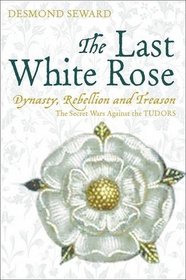Search -
The Last White Rose: Dynasty, Rebellion and Treason - the Secret Wars Against the Tudors
The Last White Rose Dynasty Rebellion and Treason - the Secret Wars Against the Tudors
Author:
Fear, treachery and rebellion - the secret wars between the Tudors and House of York. The Wars of the Roses didn't end at the Battle of Bosworth in 1485. Despite the death of Richard III and Henry VII's victory, it continued underground into the following century with plots, pretenders and subterfuge by the ousted white rose faction. In a brand ... more »
Author:
Fear, treachery and rebellion - the secret wars between the Tudors and House of York. The Wars of the Roses didn't end at the Battle of Bosworth in 1485. Despite the death of Richard III and Henry VII's victory, it continued underground into the following century with plots, pretenders and subterfuge by the ousted white rose faction. In a brand ... more »
ISBN-13: 9781845298739
ISBN-10: 184529873X
Publication Date: 9/16/2010
Pages: 320
Rating: ?
ISBN-10: 184529873X
Publication Date: 9/16/2010
Pages: 320
Rating: ?
0 stars, based on 0 rating
Genres:




